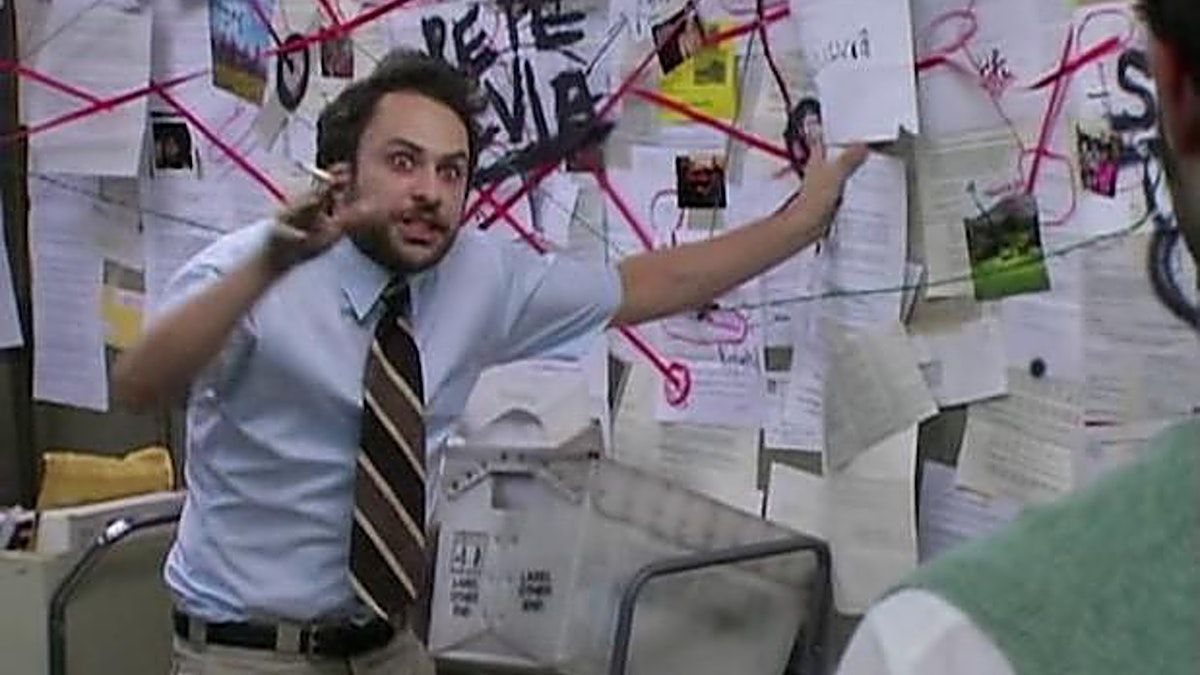Why weird conspiracy theory stories are so fun to read
The human mind finds great pleasure in connecting the dots... and nothing gives you more dots than a good conspiracy theory

Back in 1943, the US Navy conducted an ultra top secret experiment on one of its warships
The USS Eldridge, DE-173, and its skeleton crew were subjected to intense electro-magnetic fields while in the Philadelphia Naval Yards.
The experimental test meant to turn the ship invisible to the human eye.
It worked. Beyond the expectations of the testers.
But something went badly wrong.
After disappearing in a field of dark green light, the Eldridge and crew weren't just invisible.
They appeared briefly at Norfolk, Virginia. Over two hours away.
In less than 15 minutes, the Eldridge reappeared in Philadelphia.
The experimental machines on board weren't just a cloaking device.
They'd teleported the ship through space and time.
A wild success, you might think.
Except for what happened to the crew...
Did you believe a word of that story?
Does it sound too good to be true?
Does it sound like it could be just believable enough?
That's the fun of the conspiracy theory
A good conspiracy theory sticks around because it feeds you just enough to be plausible.
It doesn't have to be true, accurate, or even verifiable.
In fact, the lack of corroboration is exactly what makes them stick around.
If you could decisively settle the question, it would go away.
But when there's a question mark hanging around out there, you may as well shine a trillion-watt spotlight on the unanswered problem.
Unresolved tension motivates stories to stick around.
And there's a second thing going on.
Vivid and concrete images live rent-free in your mind
The details of the Philadelphia Experiment, as the story of the Eldridge is better known, are intricate.
We're given a time, a place, a definite sequence of specific events. If nothing else, somebody spent time on this.
While the details are obscure (of course), the tale was originally told to UFO researcher Morris K. Jessup back in the 1950s.
The teller of the tale was one "Carlos Allende", later revealed as a pseudonym of one Carl M. Allen.
The stories of Jessup and Allen are weird enough to be their own conspiracy tale.
Allende/Allen wrote to Jessup on the pretense of filling him in about a clandestine black-ops project back during the war.
After publishing a book on the subject, Jessup received a heavily-annotated copy in the mail, which appeared to be clued in to the secret physics and (likely alien) technologies used in the program.
This could all be kook stuff, except that some unnamed officers in the Navy received an anonymous copy of the annotated edition as well. They took it seriously enough to disseminate over 100 copies.
And to cap it off, Jessup himself was found dead in his car in a Florida parking lot in 1959 of an apparent suicide.
The day after he told a close colleague that he'd made a "breakthrough" in the Philadelphia Experiment.
Creepy indeed.
Is there truth behind the story?
My skeptical side says "probably not". There are mundane explanations for everything here, up to and including the dubious mental conditions of Allen and Jessup.
But that's what they'd want you to think, isn't it?
Either way, whether the story is true or false isn't even that interesting.
Leave that to the nerds and gammas to argue about.
What's far more interesting is the story... and the phenomenon it created.
Say what you will, but...
Conspiracy theorists are masterful storytellers
Obscure paranormal fringe-science stuff isn't exactly mainstream.
But they've got their own sub-culture.
They've got True Believers.
And dammit, they've got stories.
Stories to chill you to the bone and leave you wondering "what if?"
Could it be true?
What if it were true? How would the world look then?
You don't have to believe in any of it to appreciate the power of a good conspiracy story to bend the world right around you like a fish-eye lens.
Whatever you want to say, there's an energy and an excitement that goes into these stories.
Like any good mystery or dime-store detective story....
They're just fun, dammit
What else do you want out of your entertainment?
The stuff I mentioned here is only scratching the surface. We didn't even get into Al Bielek and the Montauk stuff.
For another day, maybe.
Human beings love solving mysteries. We're attracted to unresolved tensions. We like to have our suspicions confirmed and our beliefs validated.
A good conspiracy yarn ticks all the boxes, satisfying a deep human urge for meaning.
If you're a writer or storyteller, you could do worse than paying attention to how this works
PS – If you enjoy these posts, why not subscribe? That way you can receive them directly in your inbox... and you'll get the members-only posts.
There's no charge (yet) to subscribe as a free member, so click here and join now.

